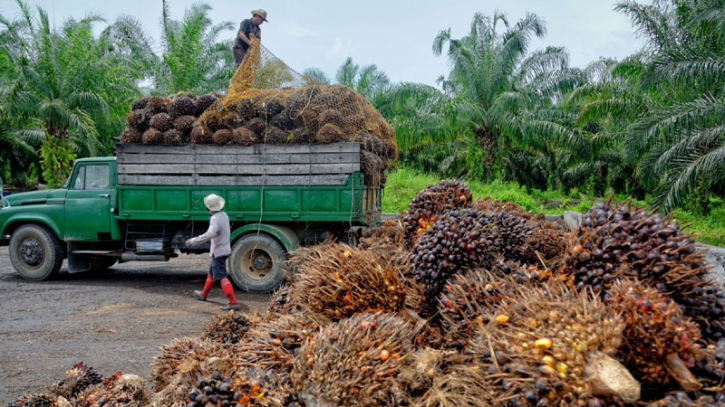Malaysia to double palm oil exports to China amid EU import restrictions

Malaysia’s deal to double palm oil exports to China annually is a move to offset potential revenue losses from the European Union’s ban on commodities that are linked to deforestation, analysts said on Monday.
The 2.5bn ringgits ($533mn) deal announced Sunday between Malaysia’s largest palm oil company, Sime Darby Oils International Ltd., and China’s GuangXi Beibu Gulf International Port Group was part of nearly 20bn ringgits in investment agreements signed during Malaysian Prime Minister Anwar Ibrahim’s one-day visit to China.
“What makes it interesting is the 500,000 tons of palm oil exports, which will undoubtedly secure the interests of smallholders and small-scale palm oil producers,” Anwar told reporters at the Nanning Marriott Hotel on Sunday after meeting with Chinese Premier Li Qiang, referring to the total amount Malaysia will export annually under the deal.
“This is the first time that China has asked for a big increase. Usually, it depends on price rates and considerations, but this time it’s a fixed import agreement from China.”
A trading and distribution hub for refined palm oil is to be established in Qinzhou, China, under the memorandum of understanding, Malaysian state news agency Bernama said.
To address climate change, European Union regulations prohibit the sale or export of commodities such as palm oil, soy, coffee, cacao and rubber within the EU if they were cultivated on land deforested after 2020.
Palm oil is a commodity used in a variety of products from soap to peanut butter. But clearing large tracts of forests for palm oil plantations causes an increase in carbon emissions, which could lead to global warming.
Analysts noted that with Malaysia’s exports to Europe expected to fall, increasing exports to China would help small farmers.
“For Malaysia, it is a way to address the economic needs of its palm oil industry and smallholders as demand from Europe and elsewhere in the developed world is projected to decline,” analyst Chong Ja Ian of the National University of Singapore told BenarNews.
“China mainly secures a commodity to meet its domestic market demands.”
An increase in Malaysian palm oil exports to China would be a win-win for both countries, analyst Collins Chong Yew Keat, from the University of Malaya, told BenarNews.
“China remains pragmatic in securing its own energy needs and interests,” he said.
“The timing is also critical not only for the agenda of Beijing in securing its food security now amidst the start of its economic decline, it is also suited to ensure that the region and Malaysia remain dependent on the Chinese economy and [its] buying power.”
China made “a wise move” to diversify its supply and import more from Malaysia to meet domestic demand, said Lee Pei May of the International Islamic University Malaysia.
“Palm oil is primarily used for food in China, and as economic activities begin to pick up, especially in tourism, it will lead to higher consumption of palm oil,” Lee Pei told BenarNews.
China did not specifically comment on the palm oil deal in a statement on the State Council website about Li hosting Anwar.
In June, the EU, Malaysia and Indonesia agreed to form a task force to implement Europe’s rule banning commodities linked to deforestation. The announcement came after EU environment chief Florika Fink-Hooijer visited the two Southeast Asian countries to discuss the issue. Indonesia is the world’s largest exporter of palm oil.
The task force was expected to focus on commodities such as palm oil, wood, rubber, coffee and cocoa, which are important for both countries’ economies, said a joint statement from the EU, Indonesia’s economic ministry, Malaysia’s trade ministry and a regional palm oil council.
.png)




